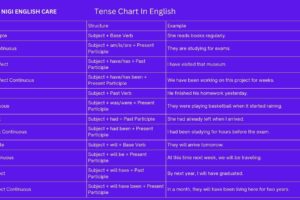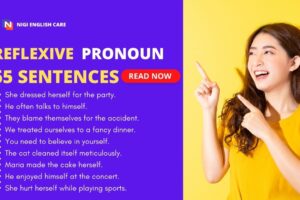
Clauses: Definition, Useful Examples, and Types of Clauses
Introduction
Welcome to our in-depth exploration of Clause: Definition, Useful Examples, and Types of Clauses. In the English language, clauses are fundamental building blocks of sentences that contain a subject and a predicate. Understanding clauses is essential for improving your grammar and communication skills. This article will delve into the definition of clauses, provide useful examples, and discuss the various types of clauses you might encounter in your writing.
Clause: Definition and Characteristics
A clause is a group of words that contains a subject and a predicate. The subject is the noun or pronoun that performs the action, while the predicate is the verb that expresses the action. Clauses can stand alone as complete sentences (independent clauses) or rely on other clauses to convey a complete thought (dependent clauses). Let’s explore both types in detail.
Independent Clauses: Expressing Complete Thoughts
Independent clauses are standalone sentences that convey complete thoughts. They can function independently and make sense on their own. Here are some examples:
- The sun sets in the west.
- She sings beautifully.
- I enjoy reading books.
- He loves opening the door when the wind is blowing.
- Because we liked this movie, we will be sure to pay it forward.
- He drove to the store to buy some bread.
- The singer sang the song well.
- Cheetahs are the fastest animals on land.
- I run.
- I am late to work.
- I love to see the birds when they fly overhead.
- I walk in the park every day because it is pretty.
- I will go home.
- He likes to cycle.
Dependent Clauses: Incomplete Thoughts
Dependent clauses, also known as subordinate clauses, cannot function as complete sentences by themselves. They rely on independent clauses to form complete thoughts. Here are some examples:
- Because the sun sets in the west, we get beautiful sunsets.
- After she sings a song, the audience applauds.
- While I enjoy reading books, my brother prefers watching movies.
- If that is a burger, I want it.
- She is hostile, mostly because she is not happy.
- Let’s go to the beach, while the weather is still warm.
- When the Queen arrives, we must take a bow.
- Because he cannot come to the party, she isn’t going to come either.
- Until it is nighttime, we cannot see the stars.
- If he can work weekends, he will earn much more money.
- This is the car which she gave me.
- The bad acting was why the film was not successful.
- This is the family who lives in the city.
Types of Clauses
Now that we have explored the basics, let’s dive into the various types of clauses that exist in the English language.
1. Noun Clauses: Acting as Nouns
Noun clauses function as nouns within sentences. They can act as subjects, objects, or complements. Here are some examples:
- Subject: What he said surprised everyone.
- Object: She doesn’t know where he went.
- Complement: Her biggest concern is whether he will come.
- How she behaved at the wedding was terrible.
- He did not know where he was.
- The best part of the film was when the boy flew.
- Whoever thought of that is so clever.
- We need to figure out how we can make our customers happy
- Whichever movie you select is OK with me.
- Make sure to send whoever helped you a thank you card.
- My best trait is that I am hard-working.
- I wonder how long he will be.
- You can give the money to whoever you want.
- I do not know whether she can run that fast.
- You can buy it if it is on sale.
2. Adjective Clauses: Providing Description
Adjective clauses, also known as relative clauses, provide additional information about a noun in the sentence. They begin with relative pronouns like “who,” “whom,” “whose,” “which,” or “that.” Here are some examples:
- The house, which is located on the hill, has a beautiful view.
- The woman, whom you met yesterday, is my sister.
- The book, that I borrowed from the library, is fantastic.
- The winning team, whose name is posted on the notice board will be given free tickets to the opera.
- Wages which are spent well are much more valuable.
- Yoga, which a lot of people practice, is a good form of exercise.
- French fries, which many people like are not a healthy food.
- My mom remembers the days when there was no TV.
- I know someone who fought in world war two.
- I love telling people about Paul McCartney, whose music I love.
- Never visit a doctor whose plants are not alive.
- This is the teacher who is very smart.
- The Eiffel Tower is a tourist site which is located in Paris.
- This is the dog that bit my son.
3. Adverb Clauses: Modifying Verbs, Adjectives, or Adverbs
Adverb clauses modify verbs, adjectives, or adverbs in the main clause. They answer questions like “when,” “where,” “why,” “how,” or “to what extent.” Here are some examples:
- She will come to the party when she finishes her work.
- He sings with enthusiasm as if he were on stage.
- They ran so fast that they won the race.
- Since it is only me, I will not eat out tonight.
- My son, although he is timid, loves to play with people.
- I always keep a packed bag, in case I find a good deal on a flight.
- Whether she likes it or not, she must write the essay.
- Unless you go quickly, you will miss the train.
- Once it saw the car approaching, the deer ran off the road.
- Now that the people have left the party, we must begin cleaning.
- As soon as he saw her, he knew that she was the one.
- My father, when he is mad, starts shaking.
- Call me when you are home from your vacation.
- You won’t be able to wear those pants unless you have the correct size.
- Eat your dinner before it gets cold.
4. Conditional Clauses: Expressing Conditions
Conditional clauses express conditions and their possible outcomes. They often contain “if” or other conditional words. Here are some examples:
- If it rains, we will stay indoors.
- Unless she studies, she won’t pass the exam.
- In case of an emergency, call 911 immediately.
- If I win the lottery, I will travel the world and fulfill my wildest dreams!
- Unless you forgive yourself, the burden of regret will weigh you down forever.
- If she loves him truly, their love story will endure all trials and tribulations.
- In case of rain, we will dance in the raindrops, embracing the beauty of the storm.
- If you follow your heart, your path will lead to untold adventures and unbridled joy.
- Unless we take action now, our planet will suffer irreversible damage, leaving future generations to bear the consequences.
- If he believes in himself, he will conquer every obstacle, emerging victorious in the battle of life.
- Without love and compassion, the world would be a desolate place, devoid of warmth and connection.
- If we dare to dream big, the universe will conspire to bring our dreams to fruition.
- In the event of a miracle, all doubts and fears will dissipate, leaving only boundless faith and gratitude in its wake
5. Relative Clauses: Relating to a Noun
Relative clauses provide additional information about a noun or pronoun. They are introduced by relative pronouns like “who,” “whom,” “whose,” “which,” or “that.” Here are some examples:
- The person who won the award is my friend.
- The car, which is parked outside, belongs to him.
- The company that he works for is a multinational corporation.
- The woman who saved the injured kitten became a hero in the eyes of the whole neighborhood.
- The majestic mountain, whose peaks touch the heavens, is a sight that leaves us in awe.
- In the old attic, we discovered a treasure trove of forgotten letters, which revealed a timeless love story.
- The little boy, whom I met at the park, had an infectious laughter that warmed my heart.
- The ancient castle, where kings and queens once roamed, exudes an air of mystery and grandeur.
- The artist painted a breathtaking landscape, which captured the essence of tranquility and serenity.
- The loyal dog, whose unwavering loyalty knows no bounds, is a true companion in both joy and sorrow.
- The book, that inspired a generation, continues to touch hearts and ignite passions.
- The small cafe, where we first met, holds cherished memories of laughter and shared dreams.
- The wise elder, who shared her wisdom with kindness, became a guiding light for all who sought her counsel.
6. Purpose Clauses: Indicating the Purpose
Purpose clauses indicate the reason or purpose behind an action. They often begin with words like “so that” or “in order to.” Here are some examples:
- She studies hard so that she can get a scholarship.
- We wake up early in order to catch the first train.
- He saved money so that he could buy a new laptop.
- She studies diligently so that she can fulfill her father’s dream of seeing her become a successful doctor.
- We wake up before dawn, in order to witness the breathtaking sunrise and find solace in its beauty.
- He saves every penny, with the purpose of building a shelter for homeless animals.
- They practice day and night so that they can deliver a flawless performance and move the audience to tears.
- In the face of adversity, she remains resilient, in order to prove to herself and others that she is stronger than any challenge.
- He works tirelessly, with the aim of creating a world where no child goes to bed hungry.
- They travel far and wide, so as to immerse themselves in diverse cultures and broaden their horizons.
- With passion in her heart, she climbs every mountain, with the dream of reaching the summit and conquering her fears.
- He dedicates his life to scientific research, with the hope of finding a cure for the incurable disease.
- They join hands, in the pursuit of peace and unity, striving to build a better world for generations to come.
7. Result Clauses: Showing Consequences
Result clauses express the consequences of certain actions. They are introduced by words like “so,” “such that,” or “as to.” Here are some examples:
- He ran so fast that he won the race.
- She spoke confidently such that the audience was impressed.
- They worked diligently to complete the project on time.
- He worked tirelessly so that he could see the smile of pride on his mother’s face when he achieved his dreams.
- The team trained relentlessly, resulting in a spectacular victory that filled their hearts with exultation and triumph.
- She took a leap of faith so that she could break free from her fears and embrace a life of boundless possibilities.
- They planted trees with love, and the result was a lush forest that breathed new life into the barren land.
- He spoke words of kindness, and the result was a world where compassion spread like wildfire, healing hearts along the way.
- She pursued her passion, and the result was a life filled with fulfillment and the joy of doing what she loved.
- They extended a helping hand, and the result was a community united in support and kindness, overcoming adversity together.
- He chose forgiveness over anger, and the result was a heart unburdened by grudges and open to love and understanding.
- They faced their fears head-on, and the result was a newfound strength that empowered them to conquer any challenge.
- She followed her dreams with unwavering determination, and the result was a legacy that inspired generations to dream fearlessly.
Examples and Practice
Understanding clauses can be challenging, but with practice, you can master their usage. Here are some exercises to test your knowledge:
- Identify the type of clause in each sentence:
- I wonder where he went.
- The book that you lent me was excellent.
- If it snows, we will build a snowman.
- Write a sentence for each type of clause:
- Noun clause
- Adjective clause
- Adverb clause
- Conditional clause
- Relative clause
- Purpose clause
- Result clause
Remember, practice makes perfect, and the more you familiarize yourself with different types of clauses, the better your writing and communication will become.
FAQs
- Are clauses and phrases the same thing? No, clauses contain both a subject and a predicate and can stand alone as sentences. Phrases, on the other hand, are groups of words that do not have a subject-verb combination and cannot form complete sentences.
- Can a sentence have more than one clause? Yes, sentences with multiple clauses are called compound or complex sentences. These sentences combine independent and dependent clauses to express complex thoughts.
- What is the difference between an independent and a dependent clause? Independent clauses can stand alone as complete sentences, while dependent clauses rely on independent clauses for their meaning and cannot function independently.
- Is it essential to know about different clauses for everyday communication? While you may not consciously think about clauses during casual conversation, understanding them can help improve your writing, make your speech more precise, and convey complex ideas effectively.
- How can I improve my grammar and sentence structure? Practice regularly, read extensively, and seek feedback from others. Online grammar exercises and style guides can also be valuable resources.
- Where can I find more examples of different types of clauses? Many grammar books and websites offer detailed explanations and examples of clauses. Reliable online resources like Grammarly and Purdue OWL are excellent places to start.
Conclusion
In conclusion, clauses are the building blocks of sentences that contain a subject and a predicate. Understanding the various types of clauses and their functions can significantly enhance your writing and communication skills. Remember to practice identifying and using different types of clauses to become a more effective communicator. By incorporating clauses skillfully, you can elevate the quality of your writing and make your ideas clearer and more compelling.



